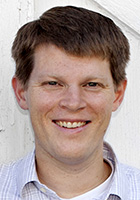city holds public meeting to respond to concerns about waste to energy plant

In response to residents' concerns about the City of Cleveland's proposed waste-to-energy plant, Cleveland Public Power (CPP) plans to hold a public meeting this Thursday, Jan. 19th at 6 p.m. at Estabrook Recreation Center at 4125 Fulton Road.
CPP and City officials have stated that the Cleveland Recycling and Energy Generation (CREG) Center will help to transform Cleveland's economy by reducing waste, increasing recycling and creating over 100 jobs. Backers also claim that the plant, which will turn trash into synthetic gas that will be used to create power, represents an advanced green technology that is safe and clean.
The statewide environmental group Ohio Citizen Action, which has joined with other environmental and resident groups to oppose the plant, argues that the city should scrap its misguided efforts in favor of more ambitious, citywide recycling programs. Given the checkered history of waste-to-energy facilities in the U.S., the group says that Cleveland should learn lessons from other cities and set more progressive recycling goals that could ultimately drive job creation.
"The history of attempts at gasification are abysmal; it's expensive and polluting," says Sandy Buchanan, Director of Ohio Citizen Action. "This isn't the first time people have gotten fascinated by a technology they think is going to be a miracle."
The real question, says Buchanan, is why the city's recycling goals are so low and what it can do to raise them. "The city's goal is zero waste, but it says that the waste-to-energy facility will recycle only 25 percent of waste," she says. "Other cities get up to 50-60 percent, and the national average is 34 percent."
The city could ramp up its recycling efforts by studying other cities, she says. Options include adding compost recycling, expanding the existing program to additional neighborhoods, better educating residents to spur participation and creating new businesses that turn waste into revenue. "For a city that is really trying to make its mark with sustainability, this seems made to order."
Ron Owens, Commissioner of the Division of Waste Collection with the City of Cleveland, disputed Buchanan's claims. "Whereas we had originally planned on taking 3-4 years to roll out our automated curbside recycling program, the CREG Center will allow us to roll it out within a one-year time frame," he says.
The city's automated, waste and recycling program is slated to be rolled out to just under 50 percent of households by this summer. CREG proponents claim that the waste-to-energy plant is a crucial aspect of expanding the city's recycling program, because it creates a viable revenue stream for such efforts.
Source: Sandy Buchanan, Ron Owens, Cleveland Public Power
Writer: Lee Chilcote

